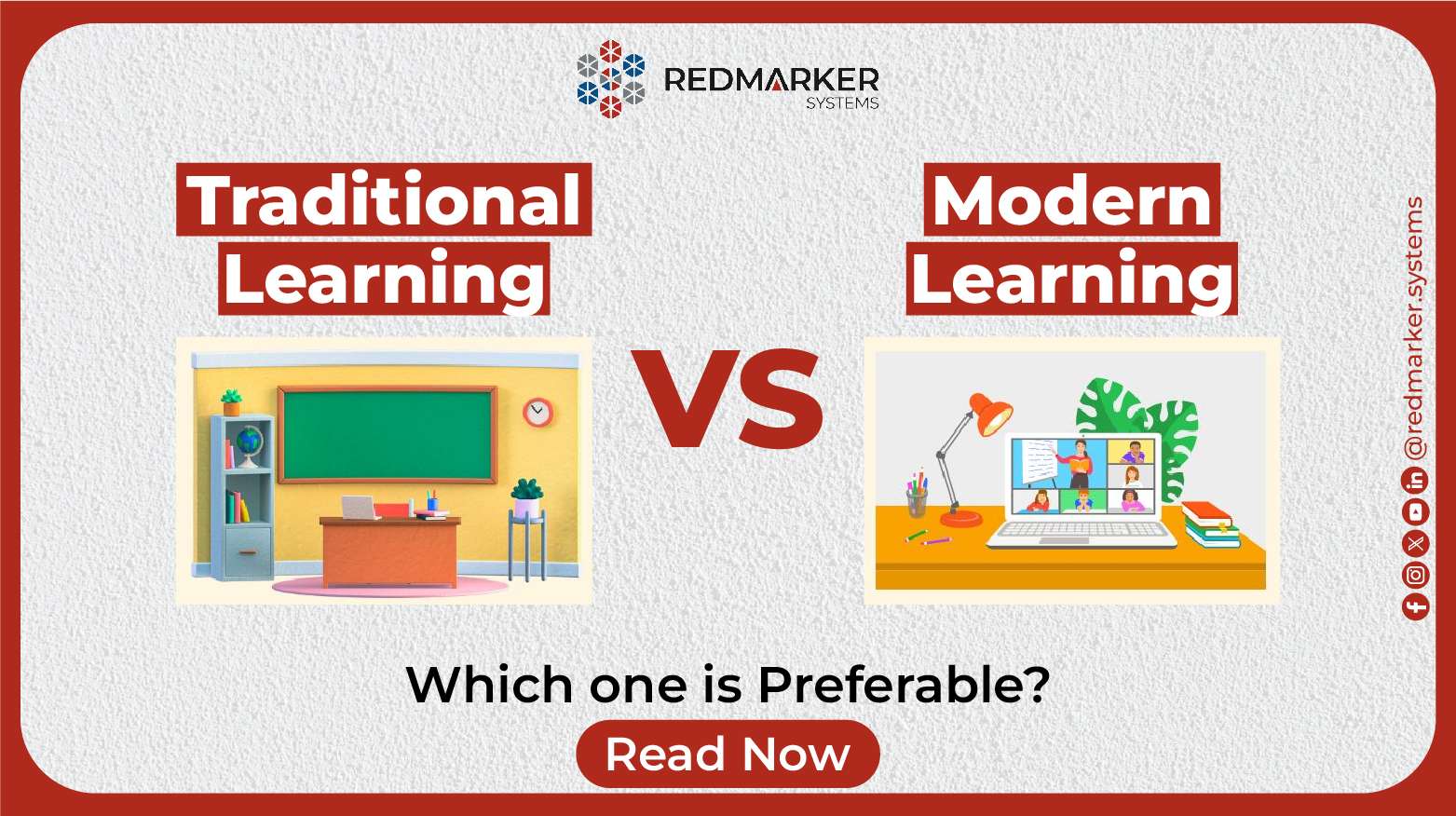Unraveling the Future of E-Learning in 2024: Exploring Evolved Trends and Strategies
Introduction
In the ever-evolving landscape of e-learning, staying ahead is not just a choice; it’s imperative. As we embark on a new year, the quest for innovative methodologies and technologies to enhance e-learning experiences intensifies. The year 2024 holds the promise of transformative trends that will reshape the way organizations and educators engage with learners, ensuring a dynamic and enriching learning journey.
Prominent E-Learning Trends in 2024
1. AI-Powered Course Creation: The Co-Pilots of Education
Amidst the e-learning renaissance, AI-powered co-pilots have emerged as indispensable allies for educators. These sophisticated AI platforms collaborate seamlessly, augmenting the course creation process. Leveraging insights from LLM AI advancements like GPT, these systems analyze data and offer nuanced recommendations, enriching course content. Despite initial strides, optimizing the balance between human creativity and AI-generated outputs remains a focus in 2024.
2. Personalized Learning: The Rise of Learner Co-Pilots
The potential of learner co-pilots continues to captivate the e-learning realm. These AI-driven assistants cater to individual learner needs, offering tailored guidance, real-time support, and adaptive content adjustments. Although in its nascent stage, successful integration of learner co-pilots promises targeted resources, personalized learning experiences, and heightened engagement, amplifying learner outcomes.
3. Dynamic AI-Driven Assessments: Transforming Learning Evaluation
The evolution of AI-supported assessments showcases immense potential. Envision assessments tailored to individual strengths and weaknesses, offering immediate feedback and personalized study suggestions. As Edtech and research delve deeper into refining AI systems, a new era in assessments unfolds, urging a redefinition of their purpose, grading mechanisms, and personalized insights into learner progress.
4. Redefining Collaboration: Cohort-Based Learning Reinvigorated
Cohort-based learning, experiencing a resurgence, fosters collaboration and community spirit in online learning. In 2024, this method strikes a balance between the flexibility of online learning and the camaraderie of face-to-face instruction. Activities, virtual meet-ups, and smaller learner groups characterize this approach, promoting engagement and higher course completion rates.
5. Augmented Reality (AR) and Virtual Reality (VR) Reshaping Learning Landscapes
AR and VR technologies stand at the forefront of immersive learning experiences. AR integrates seamlessly into daily tasks, providing real-time guidance, while VR offers a simulated environment for hands-on practice. From enhancing real-world tasks to simulating complex scenarios, these technologies augment comprehension, retention, and practical skill development.
6. Mobile Optimization: Shaping Accessible Learning Experiences
The ubiquity of mobile devices underscores the importance of mobile-optimized e-learning. With learners increasingly relying on smartphones and tablets, ensuring seamless accessibility and functionality on mobile platforms is imperative. This shift demands a reevaluation of content formats and interfaces to align with modern learners’ preferences and on-the-go lifestyles.
7. Holistic Development: Well-being and Work-Life Balance Training
E-learning programs focusing on well-being are pivotal in today’s fast-paced work environments. Prioritizing personal and professional development fosters a positive workplace culture, enhancing job satisfaction, retention rates, and overall productivity.
8. Skill-Based Framework: A Shift Towards Practical Competencies
The emphasis on practical skills over theoretical knowledge drives workforce development. Skill-based learning equips learners with real-world competencies, enhancing employability and immediate applicability in professional settings.
9. Bridging the Digital Skills Gap
Digital literacy is paramount in an increasingly digital world. E-learning initiatives targeting digital skills empower organizations by closing the gap and enabling employees to adapt to technological advancements seamlessly.
10. Navigating the Hybrid Workforce: Adaptive Training Solutions
Amidst the rise of remote and hybrid work models, adaptable e-learning solutions ensure inclusive training options for geographically dispersed employees. Flexibility in training methodologies contributes to efficiency, engagement, and overall organizational success in a dynamic work landscape.
Frequently Asked Questions about eLearning Trends in 2024
What are the new trends in e-learning?
In 2024, several transformative trends are shaping the e-learning landscape. Notable trends include the integration of AI for personalized learning experiences, the rise of AI-powered course creation, increased focus on dynamic AI-driven assessments, cohort-based learning for enhanced collaboration, augmented reality (AR) and virtual reality (VR) reshaping learning experiences, mobile optimization for accessible learning, a holistic approach to well-being and work-life balance training, a shift towards practical competencies in skill-based frameworks, initiatives to bridge the digital skills gap, and adaptive training solutions for the hybrid workforce.
What is the future of the e-learning market?
The future of the e-learning market appears promising and dynamic. With ongoing advancements such as AI-driven innovations, personalized learning experiences, and immersive technologies like AR and VR, the e-learning market is expected to witness continued growth. The emphasis on practical competencies, digital literacy, and adaptive training solutions for diverse work environments positions e-learning as a crucial component of workforce development. As organizations increasingly recognize the benefits of flexible, technology-driven learning solutions, the e-learning market is likely to evolve and expand further.
Is e-learning the new future?
Yes, e-learning is undeniably the new future of education and professional development. The integration of cutting-edge technologies, such as AI, AR, and VR, is revolutionizing the way individuals learn and acquire skills. The adaptability, accessibility, and personalized nature of e-learning make it a preferred choice for both academic and corporate settings. The trends in 2024 reflect a transformative shift towards innovative methodologies that leverage technology to enhance the learning experience. As the digital landscape evolves, e-learning is poised to play a pivotal role in shaping the future of education.
What is the newest innovation in online learning?
In 2024, one of the newest innovations in online learning is the emergence of AI-powered co-pilots for course creation. These sophisticated AI platforms collaborate seamlessly with educators, analyzing data and offering nuanced recommendations to enrich course content. Learner co-pilots, another innovation, use AI to cater to individual learner needs, providing tailored guidance, real-time support, and adaptive content adjustments. These innovations highlight the ongoing efforts to optimize the balance between human creativity and AI-generated outputs, marking a significant advancement in the field of online learning.
Conclusion
In conclusion, the e-learning trends of 2024 promise a transformative journey, where innovation and adaptability reign supreme. Organizations and educators embracing these trends pave the way for enriched learning experiences, fostering engagement, skill acquisition, and holistic growth in learners. As the landscape evolves, harnessing these trends will not only shape the future of e-learning but also redefine the partnership between technology and education.
Explore the Future. Transform Learning. Evolve with E-Learning 2024.



